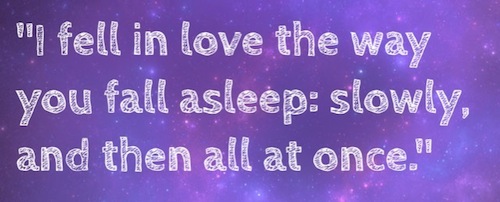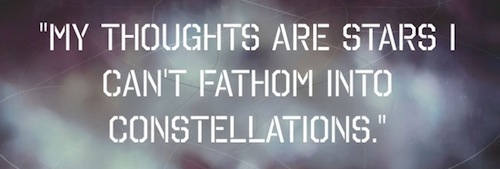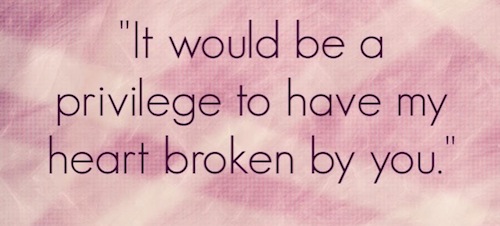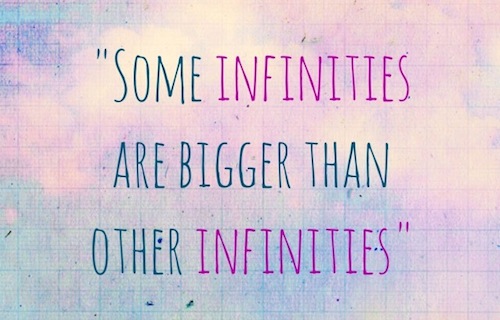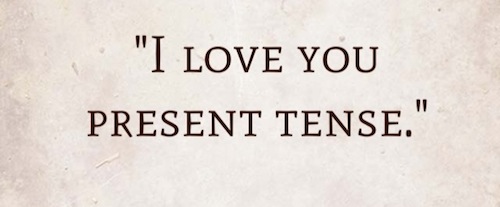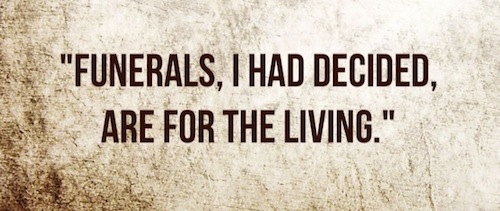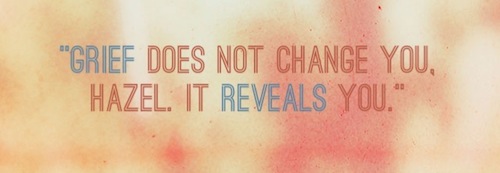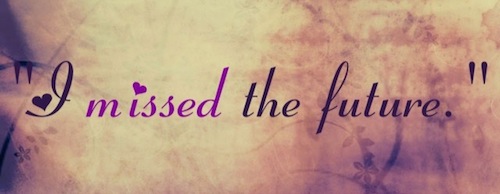Part I: The Book
"...but there is no shortage of fault to be found amid our stars."
This quote found towards the middle of John Green's novel, for the first time revealed the deep meaning intended by the title of the novel. I was, however, confused about who/what "stars" referred to. Was "stars" a synecdoche to the universe, a topic greatly pondered over throughout the book? Or, was "stars" a metonymy for human thought, which would be logical upon the fact that the book is indeed "a cancer story" and reveals the bittersweet thoughts of the dying.
The answer, I personally believe, is both. John Green, left stars as an ambiguous term and pointed out how stars could be interpreted in different ways, to fit along with what I believe to be the two contradicting themes in the novel: Do we affect the universe, or does the universe affect us?
Green purposefully had several quotes which he repeated throughout the novel, some of which reinforced the same idea, and others which refuted what was said earlier. But before I can give examples in relation to the characters, I must introduce them.
The protagonist in the story is Hazel Grace, a teenager afflicted with a terminal diagnosis of thyroid cancer along with mets found in her lungs. Her condition during the novel is relatively healthy (in terms of her previous condition) as shown by how there are no new growths due to an experimental drug. Her love interest, Augustus Waters, was diagnosed with osteosarcoma which when into remission (no sign of it) after a majority of the affected leg was amputated. What is unusual about Augustus in comparison to other characters is his unbridled, positive attitude. When asked how he is doing (with cancer) his guaranteed answer remained, "I am on a roller coaster that only goes up." The novel tells the tale of their burgeoning love by describing their encounters in great depth. Green does a clever job of making this love personal and almost infinite, by portraying both the characters as curious intellectuals who could sit on a couch killing villains in a video game and ponder over the heroic mentality, and the universe's thoughts and purposes. Green goes on to great one diverging trait between the two brilliant characters: Hazel's realism perspective on life and hereafter in contradiction to Augustus's optimism. This clever action, allowed for Hazel's and Augustus's surface arguments be representative of the greater conflict in the novel: individuals vs. the universe.
"The universe wants to be noticed" a quote said by Hazel's father when Hazel went through a bitter train of thought on why people were afflicted with disease. The quote follows along with the idea that we do indeed affect the universe, and that it relies on us and our observations of it. Hazel later on, refutes this statement by saying, "But what we want is to be noticed by the universe, to have the universe give a shit about what happens to us -- not the collective sentient life but each of us, as individuals." She has this observation after a funeral (no spoilers, don't worry) as she thinks about how an individual's greatest fear is dying and not being remembered. That is was this fear that causes our need to do a heroic action, die a heroic death, and get people to love you. Humans want to leave as many scars (mourning people) as possible, to show that they mattered. Augustus reinforced this in a letter he wrote about Hazel stating, "You don't get to choose if you get hurt in this world...but you do have some say in who hurts you." The beginning part of the quote reveals his belief that the universe is the winner of the never-ending battle, while the second part shows that the individual still has some choice.
Part II: The Movie
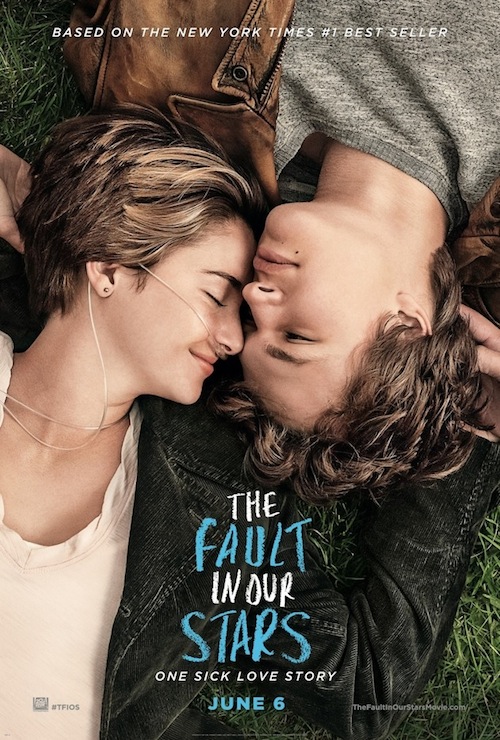
June 6th, 2014. The big day. And I already have mixed emotions, as do many fans of the book. While I have no doubt that the movie will come inferior to the book, I am anxious about how close it can reach. After some observation on social media (Twitter, Tumblr) I saw that a group of fans existed don't even want to movie to happen, with an unshakable thought that the movie would do the book no justice. While I have some reservations on the movie, I will be one of the first in line to watch it in its first viewing this coming summer.
Another thing I stumbled upon was a controversy on the movie poster (shown above): Our Sick Love Story. This motto served to grab the audience, definitely caught the attention of actress playing Hazel, Shailene Woodley, who was upset with it (just as I am). The double entendre implies that their love itself, was sick, which was not at all the case. In fact, it was the one pure, healthy aspect in the novel that contended against the enveloping, cancerous pages.
It was not only this agreement that made me satisfied with the casting of her, but the startlingly Hazel-like observation she made afterword, "I think there are so many people who are so passionate about this book that there's nothing that will ever satisfy everyone."
Part III: Favorite Quotes
I like to keep a quote journal for statements made in books that don't just stay within the pages, but are applicable to life itself. This book was practically made entirely of these kind of statements, reserving a good portion of my journal. I decided to share some of my favorite quotes below.
This 313 page novel sprinted its way to the top portion of my "All Time Favorite's List" by its unique ability to make me tear up and disgustingly snort in the same sentence. I highly recommend this book to anyone as it easily can be applied to the healthy, the afflicted, the young who have yet to learn these life lessons, and the elderly who are familiar.
